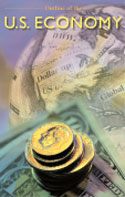|
When the United
States sneezes, an economists' proverb says, the rest of the world catches
a cold.
Between 1995 and 2005, the United States accounted directly for one-third
of global economic expansion, according to the nonprofit Council on
Competitiveness. Between 1983 and 2004, soaring U.S. imports added nearly
20 percent of the increase of the world's exports. "Developing countries
accounted for an increasing share of U.S. exports, 32.8 percent in 1985
versus 47.0 percent in 2006," a Congressional Research Service (CRS)
report says. "Developing countries accounted for 34.5 percent of U.S.
imports in 1985 and 54.7 percent ... in 2006."
After a mild recession in March-November 2001, the U.S. economy resumed
expanding, an average 2.9 percent during 2002-2006, while price inflation,
unemployment, and interest rates remained relatively low. By various
measures the United States remains the world's most productive, competitive,
and influential large economy. Yet more and more the U.S. economy is
itself influenced by dynamic economies overseas. And it faces challenges
both at home and abroad.
The
United States remains a "market economy." Americans continue to believe
that an economy generally operates best when decisions about what to
produce and what prices to charge for goods are made through the give-and-take
of millions of independent buyers and sellers, not by government or
by powerful private interests.
Besides believing that free markets promote economic efficiency, Americans
see them as a way of promoting their political values as well -- especially,
their commitment to individual freedom and political pluralism and their
opposition to undue concentrations of power. The American belief in "free enterprise" has not precluded a major role for government, however.
Americans at times have looked to government to break up or regulate
companies that appeared to be developing so much power that they could
defy market forces. They have relied on government to address matters
the private economy overlooks, from education to protecting the environment.
And despite their advocacy of market principles, they have used government
at times to nurture new industries, and at times even to protect American
companies from competition.
(Parts of the following introduction were taken from the U.S. Department
of State publication, USA Economy in Brief.)
|


